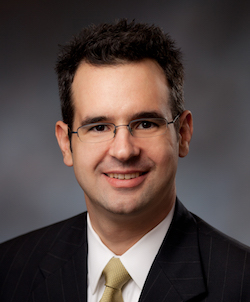Our Young Professionals Network, in the words of one volunteer
One of our most dedicated volunteers shares the highlights of his experience.
by Wanda Bertram, January 22, 2018
We frequently get emails from students and professionals of all backgrounds asking how they can be part of our work, despite living far from Western Massachusetts (as most people do). That’s why we launched our Young Professionals Network: Now, when a project calls for a savvy designer, programmer or other specialist, we can offer the work to someone who really wants the opportunity.

One of our most active volunteers is attorney Stephen Raher, who we interviewed in our recent Annual Report. Stephen has led several in-depth investigations into the industries that prey on incarcerated people and their families. He’s written extensively about exploitative prison “services” including “electronic messaging,” release cards, tablet computers, and commissary. We’re reprinting his interview below.
Why did you decide to join the Young Professionals Network?
When I was considering leaving the private practice of law, I talked to several people about how I could be helpful to the movement against mass incarceration when I no longer had the resources of a large law firm at my disposal. Peter Wagner said the Prison Policy Initiative’s Young Professionals Network could match me with high-impact projects involving my areas of expertise, and that’s exactly what has happened.
What does your work focus on? And what’s the connection between that work and the Prison Policy Initiative?
SR: I have a background in both anti-prison activism and business law. Because of the Prison Policy Initiative’s broad scope of work, I get to work on a wide variety of projects involving financial regulations, public contracting, consumer protection, and telecommunications law.The projects I’ve worked on are challenging, innovative, and they strategically fit within a larger coordinated effort to reverse this country’s incarceration crisis.
What do you think is unique about the Prison Policy Initiative and the projects it takes on?
SR: Since I started working on criminal justice issues in 1998, prisons have become a much more popular topic. As a result, a lot of organizations have rushed into this space and have prioritized projects based on funding availability or superficial talking points.The Prison Policy Initiative is one of the handful of groups that plans its work based on hard evidence and deliberate strategy. Refreshingly, it also views other like-minded organizations as true allies, not just competitors for scarce resources.
Want to learn more and see examples of past collaborations? Fill out our introduction form! Then, send the form to lcouloute [at] prisonpolicy.org.



